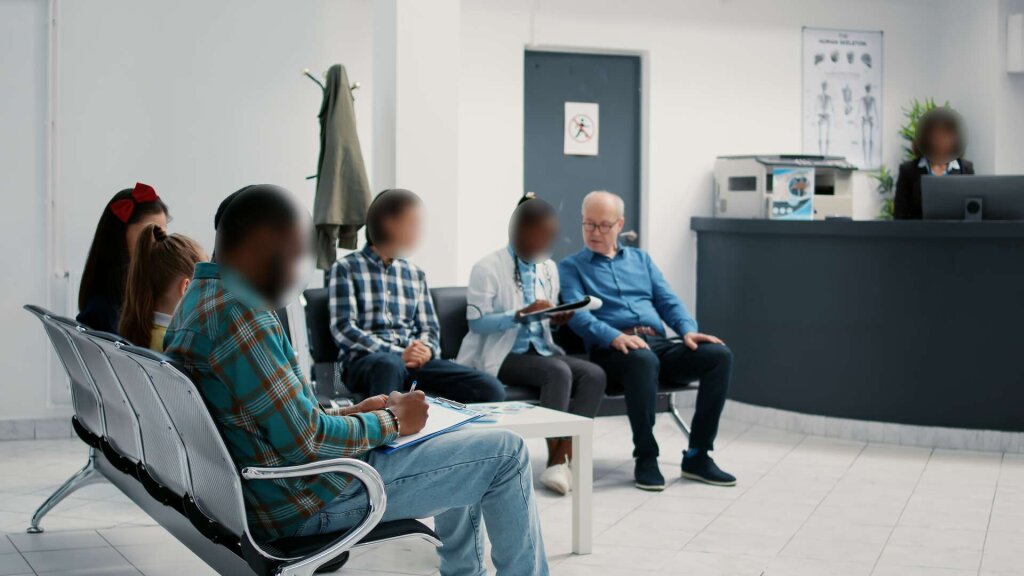Can My Employer Watch Me on CCTV From Home?
In today’s surveillance-heavy world, many employees wonder: can my boss watch me on CCTV from home? Or even, is it legal for an employer to monitor me remotely while I work? Whether you’re in an office, working remotely or at home, it’s important to know your rights when it comes to workplace monitoring.
This guide covers UK laws on workplace surveillance, including CCTV usage, remote monitoring practices and how GDPR and other legal protections stop employees being unfairly watched or recorded.
Can My Employer Monitor Me on CCTV at Work or From Home?
Yes, UK law does allow employers to monitor employees via CCTV, whether they’re working on site, remotely or at home. But only if certain conditions are met.
The key rule: your employer must tell you about the surveillance. Monitoring in secret, hiding cameras or recording in private areas like toilets or changing rooms is illegal.
CCTV can be used for legitimate purposes such as:
Protecting workplace safety
Preventing theft or misconduct
Ensuring productivity and efficiency
Monitoring company property
However, such monitoring must comply with data protection laws and respect employee privacy.

What the Law Says About Employee Surveillance
If you’re wondering if your employer can monitor you, the answer lies in several UK laws. The main laws governing surveillance in the workplace are:
The Regulation of Investigatory Powers Act (RIPA) 2000 & 2016
Sets limits on how communications and surveillance can be lawfully intercepted.
The Telecommunications (Lawful Business Practice) Regulations 2000
Allows businesses to monitor communication if it’s necessary for the operation or security of the system.
The Data Protection Act 2018 and UK GDPR
These govern how personal data, including CCTV footage, must be handled.
The Human Rights Act 1998
Specifically Article 8, which provides a right to privacy, so surveillance must be proportionate and necessary.
Together these rights and data protection laws balance the employer’s right to protect their business with the employee’s right to privacy.
CCTV Monitoring and GDPR: What Counts as Personal Data?
Under the General Data Protection Regulation (GDPR), CCTV footage is personal data if it can identify a person. Therefore, your employer must:
Tell you about the monitoring in advance
Justify why monitoring is being done
Limit surveillance use to the stated purposes
Protect the video footage securely
Delete video footage after a reasonable time
You also have the right to request access to CCTV recordings that include you, via a Subject Access Request (SAR). A SAR is a request made by an individual to an organisation asking for access to the personal data that the organisation holds about them. It is a right granted under data protection laws, such as the UK GDPR, the EU GDPR, and similar laws in other countries.
Employers must carry out a Data Protection Impact Assessment (DPIA) before implementing monitoring to ensure the surveillance is justified, proportionate and doesn’t breach employee rights.
Remote Work and CCTV: Can My Employer Watch Me at Home?
With remote and hybrid work becoming the norm, many employees ask: Can my employer watch me on camera while I work from home?
Legally, yes, but with restrictions. Just like in a physical workplace, your employer must:
Tell you about any monitoring
Explain what is being monitored and why
Provide clear policies and get your informed consent
Employers may use:
Screen monitoring software
Keyboard and mouse tracking
Time-logging systems
Webcams or video check-ins
However, this level of oversight raises moral, ethical and legal concerns. Surveillance that feels too intrusive can damage trust, reduce morale and lead to legal action if it breaches privacy rights.
Private Areas: Where Is CCTV Prohibited?
There are strict rules around camera placement. Surveillance is illegal in private or sensitive areas unless exceptional circumstances apply and employees are fully informed.
Cameras and recording devices must not be placed in:
Toilets
Changing rooms
Private rest areas
If surveillance is attempted in these spaces without good reason, it can breach the Data Protection Act 2018 and Article 8 of the Human Rights Act.

Can My Boss Watch Live CCTV from Home?
Yes, technically employers can view CCTV footage remotely, including from their homes, but only if they follow the correct legal procedures. Remote access doesn’t change the core legal obligations. That includes:
Transparency with staff
Respecting privacy
Secure data handling
Whether viewed in the office or remotely, video footage must only be used for the purposes outlined in the company’s surveillance policy.
Common Employee Concerns About Being Monitored
It’s natural to feel uneasy about being watched at work, especially if the boundaries are unclear.
Common concerns include:
Lack of trust from management
Fear of over-surveillance or micromanagement
Invasion of personal privacy
Risk of misuse of data
Discrimination based on camera footage
These employee concerns and issues can be particularly problematic in remote working environments where the line between work and personal space is blurred.
The Importance of a Workplace Surveillance Policy
To stay compliant and build trust, employers should have a clear and comprehensive workplace surveillance policy. The workplace surveillance policy should be shared with all staff and cover:
Why monitoring is taking place
What is being monitored (e.g. emails, video footage, screens)
How data is collected, used and stored
How long footage is kept
Who has access to the data
Employee rights
Transparency breeds trust, reduces legal risk and ensures everyone knows where they stand.
Can My Employer Share Video Footage of Me Working at Home?
Your employer shouldn’t share video footage of you working from home without a good reason.
Under the UK GDPR, video recordings of you are personal data. Sharing that footage without your consent or a valid legal basis (e.g. legal obligation or legitimate interest) would be a breach of your privacy.
If the footage was obtained through surveillance, then transparency and fairness are key. Your employer must have told you about the monitoring and its purpose.
If you’re worried you can make a data protection complaint or a subject access request to see what data is held.
Top 5 Tips for Employers on Monitoring Staff
If you’re considering surveillance - in-office, remotely or in a home - here are the essentials to stay legal:
Know the Rules
Understand your obligations under the Data Protection Act 2018, GDPR and relevant employment laws. Ignorance is not an excuse.
Create Clear Policies
Draft a workplace surveillance policy that explains why and how monitoring is happening. This surveillance policy should be available to all staff.
Be Respectful and Reasonable
Don’t intrude into personal privacy. Avoid monitoring in private or non-work areas.
Get Informed Consent
Always tell staff about the existence of monitoring and get consent, especially when collecting personal data or using webcams.
Secure and Limit Data Use
Ensure all data is secure and only accessed by authorised personnel. Follow strict timelines for deleting video footage and limit use to its intended purpose.
What to Do If You Have Concerns about Being Monitored
If you think your employer is monitoring you illegally, try:
Check your contract or staff handbook for surveillance policies
Submit a Subject Access Request (SAR) to see what data is held on you
Speak to your HR representative or raise a formal grievance
Contact a union or seek legal advice if your rights are being breached
You can also withdraw consent in some cases, especially if you think the monitoring is excessive or unjustified.
Conclusion: Know Your Rights, Stay Informed
So, can your boss watch you on CCTV from home? Yes, but only within UK law. Monitoring must be proportionate, transparent and respectful of your privacy.
Whether you’re in a high-security office or working from your living room, you have the right to know when, why and how you’re being monitored. Employers must walk the line between protecting their business and your dignity and data.
Be aware, ask and speak up. Surveillance isn’t going away, but your rights do.
Related Articles



